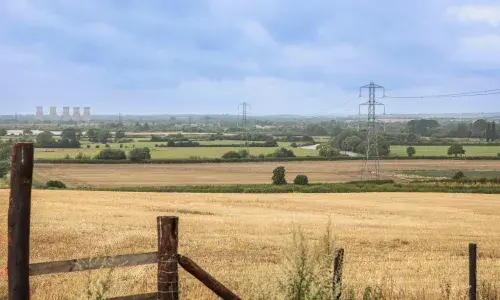
Cold homes continue to benefit from National Grid’s £150m Warm Homes Fund
National Grid set up the £150m Warm Homes Fund in 2017, the largest private sector investment in energy efficiency ever made in Great Britain
Affordable Warmth Solutions (AWS) a not-for-profit company runs the Warm Homes Fund on behalf of National Grid, installing affordable heating solutions in fuel poor households who do not use gas as their primary heating.
AWS is celebrating its 10-year anniversary this year, and today (November 29) on national Fuel Poverty Awareness Day, it is launching a report covering a decade of the fight to eradicate fuel poverty. It has to date connected 48,000 homes to mains gas and supported a further 42,000 homes through the Warms Home Fund. This represents lifetime environmental savings of 3.5million tonnes of carbon dioxide, the equivalent of taking 580,000 cars off the road permanently.
Householders covering the length and breadth of the country from rural locations including Scottish Islands, Norfolk and Suffolk to the extremities of the south west of Cornwall, together with urban towns and cities including boroughs of London, Manchester, Leeds and Newcastle, and onwards to the coastal towns of North Wales and Plymouth – they have all benefited from the Warm Homes Fund, with many seeing electric storage heaters replaced with new energy efficient gas heating systems and renewable technologies such as air / ground source heat pumps. The Warm Homes Fund is not just about new heating systems, it also provides support to a vast array of organisations, bringing together charities, health boards, councils and the private sector to promote energy efficiency and/or health related programmes.
Chris Bennett, Director of UK Regulation for National Grid said: "We support Fuel Poverty Awareness Day and The Warm Homes Fund, because nobody should have to live in cold, damp and energy inefficient homes.
“I’ve seen at first-hand the difference AWS and the Warm Homes Fund has made to make fuel poor households warmer and improve the health of people suffering the most severe levels of fuel poverty.”
Jeremy Nesbitt, Managing Director for Affordable Warmth Solutions said: “The Warm Homes Fund together with the relationships we’ve built with local authorities, housing associations and other local delivery partners has already helped to lift tens of thousands of people out of fuel poverty and given them a better chance in life as a result.”
He added, “we’ve recently commissioned an independent evaluation of the Warm Homes Fund and we will work with Government to learn the lessons and develop a blueprint for the future delivery of such programmes, that wouldn’t have been possible without the investment by National Grid”.
For more information on the Warm Homes Fund, bidding process and eligibility, visit the Warm Homes Fund page.
Contact for media information only
Press Officer (Monday, Tuesday, Thursday and Friday)
Helen Blake
[email protected]
+44 (0)7790 824788
+44 (0)1926 655619
Notes to Editors:
National Grid is pivotal to the energy systems in the UK and the north eastern United States. We aim to serve customers well and efficiently, supporting the communities in which we operate and making possible the energy systems of the future.
National Grid in the UK:
- We own and operate the electricity transmission network in England and Wales, with day-to-day responsibility for balancing supply and demand. We also operate, but do not own, the Scottish networks. Our networks comprise approximately 7,200 kilometres (4,474 miles) of overhead line, 1,500 kilometres (932 miles) of underground cable and 342 substations.
- We own and operate the gas National Transmission System in Great Britain, with day-to-day responsibility for balancing supply and demand. Our network comprises approximately 7,660 kilometres (4,760 miles) of high-pressure pipe and 618 above-ground installations.
- Other UK activities mainly relate to businesses operating in competitive markets outside of our core regulated businesses; including interconnectors, gas metering activities and a liquefied natural gas (LNG) importation terminal – all of which are now part of National Grid Ventures. National Grid Property is responsible for the management, clean-up and disposal of surplus sites in the UK. Most of these are former gas works.
Find out more about the energy challenge and how National Grid is helping find solutions to some of the challenges we face at https://www.nationalgrid.com/media-centre
National Grid undertakes no obligation to update any of the information contained in this release, which speaks only as at the date of this release, unless required by law or regulation.



